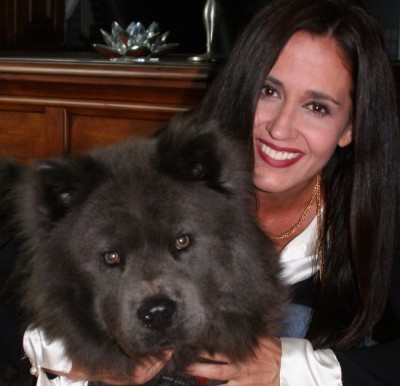Kyle worked for a large international consulting firm. It was one of the best organizations in the country and he worked with a prominent client. It was a dream job for him and he was rewarded handsomely. Kyle was hand picked by his senior management team to head up a new department out of state. It would require him to uproot his family, but the opportunity was priceless. Or so he thought.
Kyle always excelled. Period. He considered it to be “what he does.” It’s where he was comfortable. Grades were everything and he graduated at the top of his class in high school. He had his choice of any University. He soon graduated with accounting and finance degrees. Like most people out of college, he went to work in his chosen career. He quickly worked his way up the corporate ladder with promotion after promotion. He was a high achiever and he worked for gold stars and all that came with it. He lived by the motto, “I achieve; therefore I am”. He was thrilled and he thrived off of impressing others and himself with his knowledge and ability to get things done. His hard work allowed him, his wife, and his children to live exceptionally comfortably. They experienced the luxury of a life without any debt.
Kyle, however, was a workaholic and there was a price to pay. He went to great lengths to avoid being mediocre and took a “no pain no gain” attitude. His relentless standards took a toll on him. He worked everyday, never taking a day off. He easily put in 90-100 hour weeks. He believed that this level of commitment is what drove his productivity and excellence, and that he couldn’t obtain it otherwise. He constantly focused on the things he had not accomplished, which gave him a relentless drive to out-do himself. He didn’t dare ask for help or delegate to anyone. In his mind, it would prove his incompetency.
Kyle always went above and beyond what was asked of him. Senior management would ask Kyle for “X” and he would deliver “XYZ”. He couldn’t deal with the mediocrity that “X” would represent. He worried that people would think that “X” was best he could do. So, he exhausted himself to deliver a final product that was superior, despite the fact that this wasn’t what was asked of him.
Most people would agree that Kyle appeared to be a happy, intelligent, successful, tenacious and a driven man with a wonderful family, who was living a dream life. I first met Kyle shortly after a near life ending suicide attempt.
Discovery.
Kyle spent weeks in Intensive Care and was then transferred to Inpatient Psychiatric Care. When I met him, Kyle was broken and distraught. Kyle had shot himself in the chest and the bullet lodged in his ribcage, miraculously missing any vital organs. The man I met was fragile, defeated, and a shell of the man who he described who never failed.
We had a lot of work to do together in therapy. As Kyle’s story unfolded, I discovered that Kyle’s father was an alcoholic. For years, Kyle lived in an environment of walking on eggshells and constant, unrelenting shame associated with his father’s disease. His father was extremely verbally abusive when he drank. Kyle and his mother were typically on the receiving end of his father’s rage and tirades. Self-esteem is formed in childhood, when an individual is developing his initial view of himself and his attributes. The attitude and the health of the parents are passed down to the child. Once formed, low self-esteem cannot be overcome without going through a recovery process.
Kyle’s father later disappeared when Kyle was in his teens, but Kyle never recovered from the shame and feelings of low self-worth. His father ended up in prison a few years later. Kyle experienced even more humiliation and embarrassment. He religiously sent his father money while he was in prison and made constant phone calls. All the while, he kept his contact with his father secret. Kyle even concealed it from his wife and children. He was terrified of being like his father and often referenced his shame of “being from the same blood.” Kyle buried his secret, telling no one, and buried himself in achieving. He believed it made him worthwhile. Most importantly, he believed it made him something other than his father.
Solutions.
Kyle’s main issues that surfaced during therapy were debilitatingly low self-esteem and incapacitating perfectionism. Kyle was driven by fear. He feared failure. He equated failure to achieve his goals with a lack of personal worth or value. Kyle also feared disapproval. If he were to let others see his flaws, he feared that he would no longer be accepted. The pursuit of perfection was a way of attempting to protect himself from criticism, rejection, and disapproval. Since he felt so imperfect and so inadequate, he anxiously exerted tremendous energy into looking and acting in ways that were acceptable.
It is common for people who suffer from low self-esteem to try to look calm when they are not, to hide their embarrassment when they think they’ve made a mistake, to look like they understand a discussion when in fact, they don’t, to look confident when they feel inadequate, and to exert a lot of energy trying to “look good”. Kyle felt that others would think less of him if he showed emotion or admitted to “not knowing” something. He would try to maintain the appearance that all was well, when that was not at all how he felt. Kyle felt too vulnerable to let others see that he had problems or that he was having difficulties in his life.
A person cannot merely “raise” low self-esteem and transform it into healthy self-esteem. Instead, I taught Kyle to learn to alter his basic view of self and transform his thinking and attitudes. This is not a simple process or a quick fix. We worked heavily, identifying and recognizing his patterns of behavior and their consequences. We also did a lot of work on challenging and changing negative thought patterns. Most of the work I do involves Cognitive Behavioral Therapy or CBT.
Kyle’s marriage was also suffering. He had been working so many hours that he didn’t have time for his wife or his family. He was incredibly neglectful and left his wife to handle most everything. He wasn’t there emotionally. His wife was not adjusting well to the new move and she was finding it difficult to make new friends. She was lonely and isolated and often just wanted to spend time with her husband. Kyle, however, admitted he no longer enjoyed being at home and, in fact, recognized that he didn’t care for spending time with his children. He believed they were just more work for him. Kyle identified that parenting triggered his insecurities about his own ability to be a father and what he believed was his poor role model; his own father. He was fearful of making the same mistakes with his children. We worked heavily on communications skills and how to improve relationships as well as how to parent with limits.
Kyle’s company was extremely supportive. His boss even admitted to Kyle that he also suffered from depression at one time. His boss told him to take as much time as he needed to get better. The support was a wonderful surprise. What the company didn’t know, however, was that Kyle had been suffering incapacitating panic attacks at work. He would often curl up in his car overwhelmed with fear and an inability to breath before a presentation. They became more and more difficult to hide from everyone. There was also had a brief period of time where he self-medicated with alcohol at work as a way to “take the edge off”. He was terrified of others smelling alcohol on him or co-workers catching him drinking.
Through therapy, we discussed at length whether or not Kyle truly wanted to resume his responsibilities at work. He contemplated whether he could return to the same predicament that nearly ended his life. There were many things that would have to change regardless of where Kyle ended up. Kyle was willing and open and that was most of the battle. Therapy was a long arduous process. I taught Kyle how to identify triggers, how to set boundaries with others and himself and ways to prioritize life according to his terms. You are probably asking whether or not he returned to work. I’m not going to tell you and I hope you realized it’s not important. Kyle learned far greater lessons that will help him wherever he ends up in life. What I will tell you is that Kyle is both happy and healthy, and that he has reconnected with his wife and family. Helping Kyle change his life was very rewarding. I truly love making a difference.
Carrie







Thank God you were able to get through to Kyle. I’m also glad he learned to use strategies that will remedy his issues. Self esteem is a key factor of self wealth & positive outlook upon life. I hope he continues to make wise choices to bring success in he & his families life.
I’ve met people like Kyle before. An ex brother-in-law had that kind of workaholic drive (and, on paper, was the most successful one in the family until the divorce)
And isn’t that the $350,000 question (his salary a few years ago). Workaholics are paid pretty well, by and large. And in a society where “Money is how we keep score” I guess they “win?” I don’t make my age, so I’m a loser and a failure even though I help people every day. Students hoping to make their own mark in the world. But he (and Kyle) are more valuable to our society in the eyes of many. So what if it’s destructive? Go! Fight! Win! (at all costs)
That’s how we think. And until we change our ways, more people are going to end up like Kyle, or worse. The statistics are there screaming at us. We have a crisis on our hands and you know, mental health is complicated. It’s “scary.” We whistle past the graveyard and hope it will go away.
Do I have suicidal thoughts from time to time?
Yep.
But I can’t leave just yet. I know that. Logically. Because I don’t make much money and don’t have a glamorous job, I feel as though I’ve failed at life. As a father, husband, and provider. It weighs heavily on me. It is comforting to know I’m not alone thanks to stories on the Internet, but I don’t want ANYONE to have this level of hate, fear, and hopelessness in their minds. It’s painful to be 45 and feel like your life is over. It sucks. But life moves on, right? I just don’t know.
Good luck!
Greetings! Very helpful advice within this post! It is the little changes which will make the
greatest changes. Thanks for sharing!